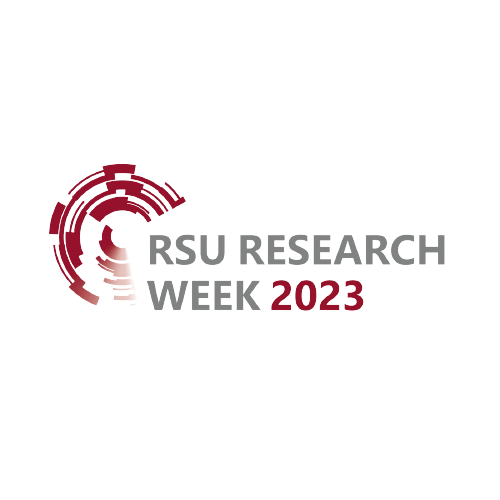This one-day conference is a side event of the 3rd International Interdisciplinary Conference PLACES, organised by Rīga Stradiņš University.
Numerous studies have found that narratives, which accompany scientific consensus, technological innovations and climate and energy policies, are important triggers for mobilising (or not) the public support for climate-friendly action and green energy transition. At the same time, climate and energy narratives are constantly challenged and contested. Which narratives are the most persuasive regarding climate change and energy transition? What makes them persuasive? Who are the most powerful narrators? What are the horizontal and vertical dynamics between different narratives? What similarities and differences can be observed in climate and energy narratives across the world?
You are cordially invited to submit an abstract discussing the narratives on climate change and energy transition. Both theoretical and empirical studies are welcomed focusing on a wide geography and a spectrum of topics including but not limited to:
- Formation, projection and reception phases of narratives;
- Factors determining the persuasive power of narratives;
- The role of narrators in the spread of narratives;
- Contestation and emergence of alternative narratives;
- Specific geopolitical, historical, economic, social and cultural contexts and their impact on narratives.
These debates will contribute to the findings of a research project on climate change narratives carried out by the Faculty of European Studies. They will produce a number of suggestions for further awareness and engagement of society in climate and energy-saving activities via the narratives, and will also set the future research agenda about the narratives and their role in addressing the challenges of climate change and energy transition.
- Programme
Session I: Narratives: Why They Matter in Climate and Energy Transitions
Chair: Prof. Andris Sprūds, Vineta Kleinberga11:00–11:30 KEYNOTE: To the Question of Resilient Normative Images of the EU at the Age of Uncertainty: Narratives of Climate Change and Environmental Protection
Prof. Natalia Chaban, Department of Media and Communication, University of Canterbury, New Zealand11:30–12:00 KEYNOTE: Words as Tools for Climate Action: Challenging Business as Usual with Emancipatory More-than-Human Language
Asst. Prof. Michał Pałasz, Faculty of Management and Social Communication, Jagiellonian University in Krakow, Poland12:00–12:30 Discussion 12:30–13:30 Break Session II: Narratives as They Are Told: Climate and Energy Transitions from Various Actors' Perspectives
Chair: Vineta Kleinberga13:30–13:40 Between Two Worlds: Sovereignty, Climate and Narrating the Future in Taiwan
Prof. Ben O'Loughlin, Dr Pauline Sophie Heinrichs13:40–13:50 Climate Policy Narratives of the Political Elite of Latvia (Parliament, Cabinet of Ministers, and Municipalities): A Comparative Analysis
Lelde Metla-Rozentāle13:50–14:00 Market Arguments, Contested Energy Transitions and Sweden's Energy Policy Framework
Hugo Faber14:00–14:10 Climate Change, the Media and Consumption Narratives
Dr Anastasia Denisova14:10–14:20 Narratives about Climate Change Produced in Latvian Business Environment
Kristīne Blumfelde-Rutka14:20–14:30 Projection of the European Union Climate and Environmental Narratives in the Debates of the Latvian Parliament (2018–2022)
Katrīna Laura Tkačenko14:30–15:00 Discussion 15:00–15:30 Break Session III: Enabling and Contesting the Narratives: The Role of Perceptions, Attitudes and Imaginaries
Chair: Kristīne Blumfelde-Rutka15:30–15:40 Winners or Losers? Perceptions of Climate Change and Related Policies in Latvian Society
Vineta Kleinberga15:40–15:50 Institutionalising a Promise: The Case of SMR Regulation in Finland
Dr Matti Kojo15:50–16:00 Generation Z’s Attitudes Towards the Narrative about Sustainable Transport and Electromobility in Poznań, Poland
Zuzanna Jezierska16:00–16:10 Integration of Climate Change Content in Marketing Communication of Retail Companies in Latvia
Santa Kliedere16:10–16:20 Who's Behind the News? The Role of News Agency LETA in the Framing of Climate Change in Latvian Media
Dr Ilva Skulte16:20–16:30 Production of Wind Energy in Latvia: A Comparison of the Government's Strategic Narrative and the Political Narratives of the Kurzeme Planning Region (2019–2022)
Dace Vašuka16:30–16:40 The Survey of Systemic Food Waste Generation Causes in Latvian Retail, Catering and Households
Raimonda Soloha16:40–17:00 Discussion 17:00–17:30 Break Session IV: Political, Economic, Legal and Cultural Contexts for Climate and Energy Narratives
Chair: Lelde Metla-Rozentāle, Vineta Kleinberga17:30–17:40 Bringing Climate Action to the European Level: Assessing Why EU Member States Push for an Ambitious EU Climate Agenda
Māra Baumane17:40–17:50 Mapping the Existing Local Ecosystem Waste Management Practices in the EU
Anna Broka17:50–18:00 Corporate Sustainability Reporting – More than a Tool for a Company's Reputation Management
Kristiāna Plāte18:00–18:10 Potential of Legal Tech for Energy Justice Legislation
Judith Kärn18:10–18:20 Waste Management in the Context of the Circular Economy: International and Latvian Experience
Laura Martinsone18:20–18:30 Do You Believe Them? Perceived Trustworthiness of the Narrator in Evaluating the Effectiveness of Climate Change Narratives
Vineta Kleinberga18:30–18:50 Discussion 18:50–19:00 Concluding Remarks: Future Research Agenda
Prof. Andris Sprūds, Vineta Kleinberga

